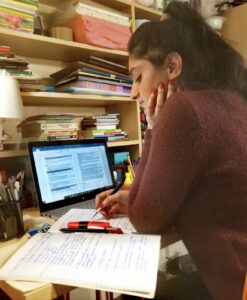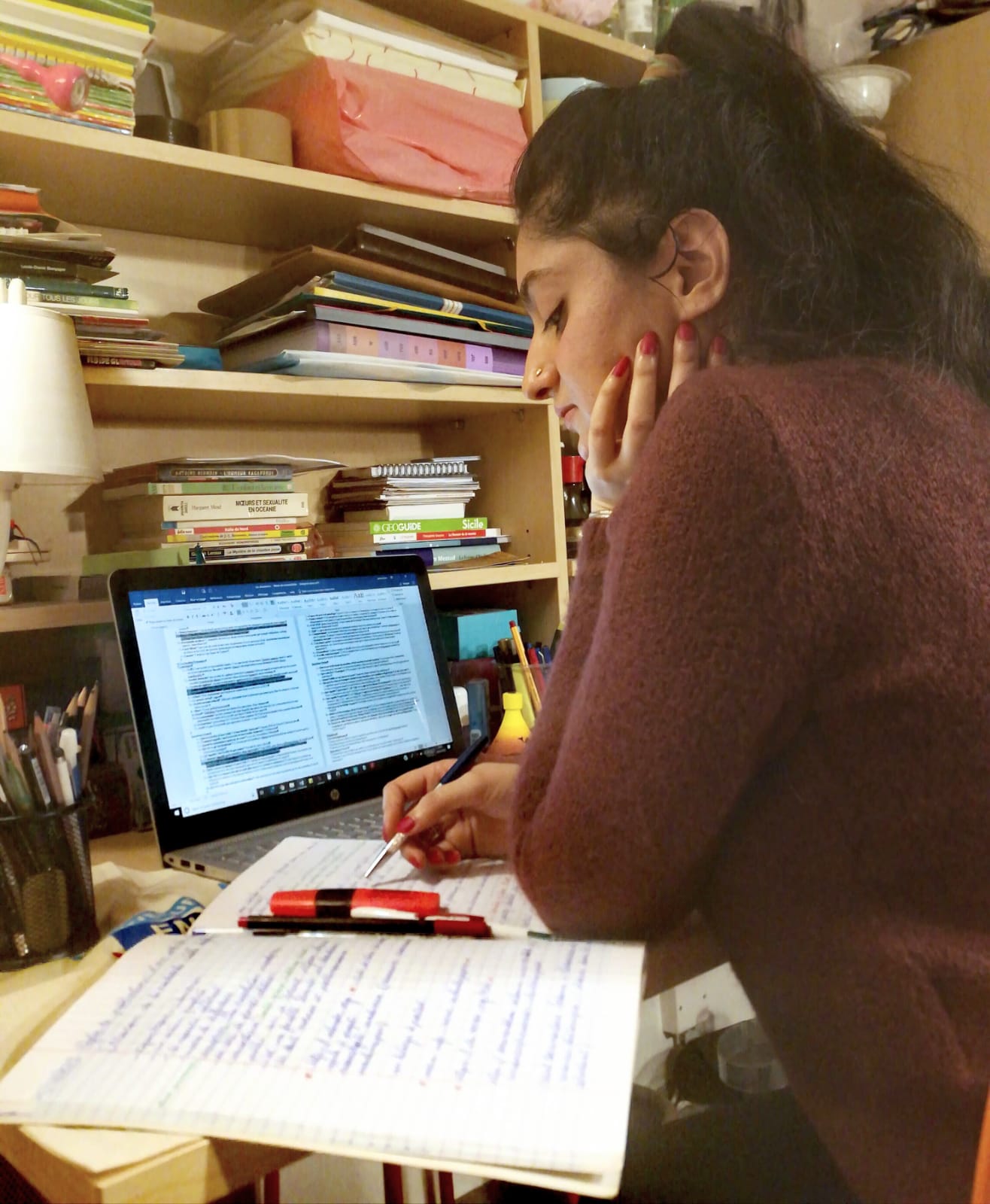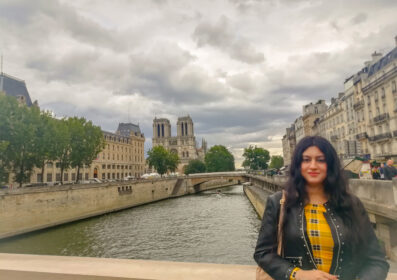Step 1 : Learning French
For me, learning the French language was a childhood dream. When I was little, my family and I moved to Scotland for my father’s doctoral studies. There, my older brothers studied French in high school, and it was then that I fell in love with the French language. But unfortunately, we went back to Pakistan before I could start learning it. However, the idea of one day speaking French stuck in my mind.
So, in 2008, in Pakistan, I made the decision to start learning French. After finding out about French classes in Lahore, I enrolled in an online course in the Department of French at University of the Punjab. By taking this step, I began to realize my dream. Then, from 2009 to 2011, I took French courses at the French Centre of Lahore. During this time, I also enrolled in the French Master’s degree at the University of Punjab, which I passed with 2 gold medals in 2011. In the two years that followed, I started to teach French in several universities and institutes of Lahore including Pakistan Institute of Fashion and Design (PIFD), COMSATS Lahore, UMT Lahore as well as the French Centre. In 2013, I moved to Islamabad for two years to pursue an MPhil in French from NUML University. From 2014 to 2015 I also taught this language for a year at the French Centre of Islamabad and NUML University.
Step 2 : Studying in Paris
Nevertheless, my goal after learning and teaching French, was to further my language skills in a French environment, and especially to pursue a degree in Teaching of French as a Foreign Language. The desire to master this language encouraged me to pursue my studies in Paris, France.

Concerning the French higher education system, there are similarities as well as differences between the Pakistani one. In Pakistan, we have a single 2-year course called MPhil. In France, this course is broken down into 2 individual years called Master 1 and Master 2. The marks of Master 1 determine admission into Master 2, and the marks of Master 2, as well as the marks obtained in the thesis written during Master 2 determine admission into PhD.
In both Master 1 and 2, there are 8 or 9 modules to be chosen which are evaluated via exams and also individual or collective assignments which must be submitted on a fixed date. Students also have a choice to give an oral presentation instead of a written one. In addition, depending on the field, there are internships to be taken concerning the professional component of the coursework.
Since I was studying Teaching of French as a Foreign Language in Master 1, I did a 2-week internship at my university, teaching French to foreign students. The internship was evaluated, and afterwards a detailed overview of my experience that I submitted was also evaluated. There is also a possibility for students to do internships abroad or in their home country.
In Master 2, studies remain the same except for an 80-page dissertation that has to be written by the end of the academic year. For this dissertation, students often opt to go abroad or to their home country for a few weeks, in order to collect their data. This again depends on the field of study and the topic of research.

Students create an account on this digital platform, since, all new information, the PowerPoint slides of the courses, the dates of submission of assignments are all uploaded on this digital portal. It is also a platform to hand over assignments as well as to have an exchange among students regarding academics. Students can also access their university mailbox, and find their student files which include the exam results, administrative files etc.
All this may seem exhausting and insurmountable at first, but rest assured that the teachers and the administration staff are always available to students, especially foreign students, since they are well aware that students might not know about the French system of studies.
Throughout my studies at the university, my teachers and the administration staff guided and helped me as much as they can, and I truly remain grateful to them.
Step 3 : Getting admission into PhD
After Master 2 comes the process to obtain admission in PhD. Often, for scholarship holders, 3-4 years are given by the university to complete this research. However, for those without a scholarship who are doing a job alongside, 6-7 years are given. In order to get admission into PhD, students need at least 14 out of 20 in their thesis of Master 2, as well as a good overall grade. If the overall grade is above 18, they are liable for a doctoral contract, in which students are paid 1300 euros each month by their doctoral school.
- The first step in getting admission in PhD is preparing a research proposal. This research proposal could be discussed with the thesis supervisor of Master 2, and the student can continue their PhD with them in the same university, or submitted to various supervisors of different universities.
- Once a supervisor accepts the research proposal; the doctoral school decides on the admission of the candidate for PhD.
- Once the student is accepted by the doctoral school, they can submit their fees and obtain their enrolment into PhD.
Sometimes this process could take time, because it is a challenge to find a supervisor who is interested in your field, or whose fields matches your own, so there is no need to panic. Some students obtain admission into PhD straight away, for some it could take a few months. For me, it did not happen straight away, and I had to struggle a little. I also had to change my initial domain of my research proposal because there was no supervisor available of that field. Campus France helped me immensely in this matter. They proposed many PhD offers and also offered to send my research proposal to various supervisors. Campus France has always been helpful in my time of need.
Thus, even though there may be some challenges in studies here, someone is always here to help. It could be your teacher, someone in the administrative department, your supervisor or even Campus France.
Normally, Pakistanis tend to study in English-speaking countries. But we must not confine ourselves to a specific culture or language.
I advise Pakistanis to discover new cultures, languages and new countries, and in my humble opinion, France is a very good choice. It is really worth the effort. Believe me, I speak from personal experience.





 Accéder à mon compte
Accéder à mon compte



